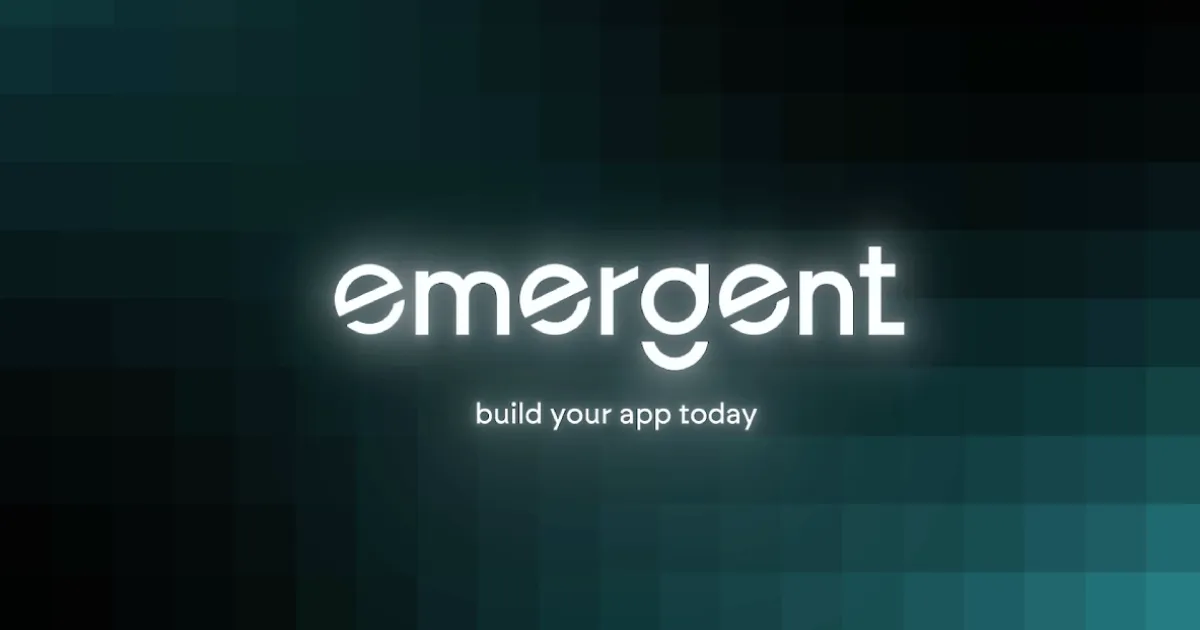Emergent raises $23 million to help anyone build apps with AI agents

In the last decade, improved smartphone cameras fueled the rise of platforms like Instagram, YouTube, and TikTok, turning casual creators into professionals. Now, a startup called Emergent wants to do the same for app development—transforming non-technical users into app builders.
Founded by twin brothers Mukund and Madhav Jha, Emergent allows users to build apps with simple prompts while its AI agents handle the heavy lifting—coding, error fixing, API management, and deployment. The platform has already enabled more than 1 million people to create 1.5 million apps since launching last year.
$23 Million Series A Backing
On Wednesday, Emergent announced a $23 million Series A funding round, led by Lightspeed with participation from Y Combinator, Together Fund, and high-profile angels including Balaji Srinivasan, Google’s Jeff Dean, and Mistral’s Devendra Chaplo. The raise brings Emergent’s total funding to $30 million.
Mukund, who previously served as CTO at Indian quick-commerce startup Dunzo, said the brothers envisioned Emergent after seeing AI coding agents gain traction. “Agent-based app development is going to be a huge part of the economy, and we felt that was the problem we wanted to solve for the next twenty years,” he said.
We raised $23M Series A @EmergentLabsHQ , everyone celebrates that. But we aren't
— Mukund Jha (@mukundjha) September 24, 2025
Here's what we truly want to celebrate pic.twitter.com/o8oWTA7Opl
How It Works
Emergent differentiates itself from developer-focused tools like Claude Code or Cursor by abstracting the technical side of software development. For example, if an app runs into a bug, Emergent’s AI agents automatically diagnose and fix the issue without requiring the user to understand code.
In a recent demo, an app for tracking pet vaccinations was built in under half an hour. The AI asked clarifying questions—such as whether the app was for multiple users or how reminders should be scheduled—and generated a functional dashboard, pet profiles, and notification features.
Emergent also manages backend infrastructure and deployment, currently using Expo for mobile apps. It plans to launch its own native mobile builder soon. To simplify integration, the startup uses a universal API key that spares users from creating accounts across multiple third-party services.
Features and Future Plans
- Brainstorming mode: Helps users refine vague app ideas into concrete features.
- Education layer: Teaches non-technical users about APIs and components in plain language.
- Discovery & monetization: Developers can integrate payment systems like Stripe (with their own keys for now), but Emergent plans to build native discovery and revenue tools.
Emergent faces stiff competition from startups like Vibecode, Rocket, and even design giants like Canva and Figma experimenting with mini-app creation. But investors believe Emergent’s approach—supporting the full app lifecycle from development to bug fixes and maintenance—sets it apart.
“One of the biggest roadblocks to participating in the digital economy is the ability to code,” said Hemant Mohapatra, partner at Lightspeed. “Emergent brings that capability bar next to zero, making app creation a function of intent.”
The Bigger Picture
Emergent is betting that “vibe coding”—building apps through natural language and AI collaboration—will be the next big wave in consumer creativity. Just as social media democratized content creation, the company hopes to democratize app development, positioning itself as the go-to platform for the next generation of digital creators.





